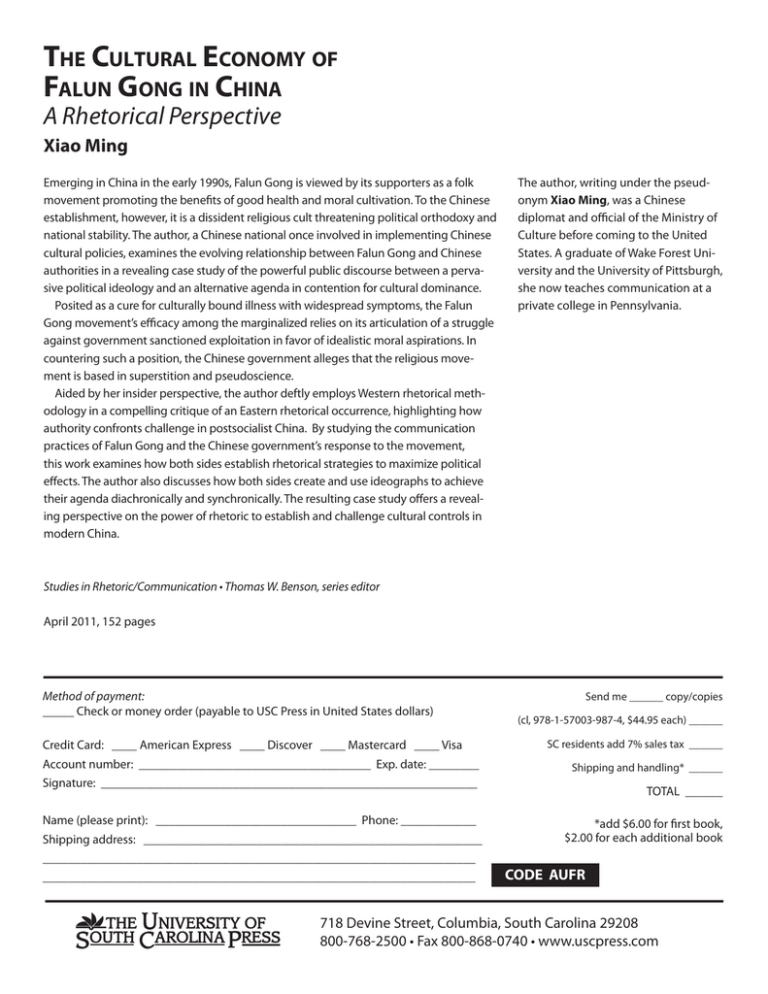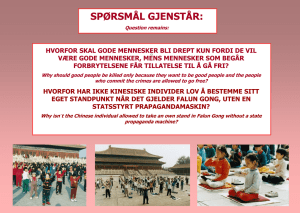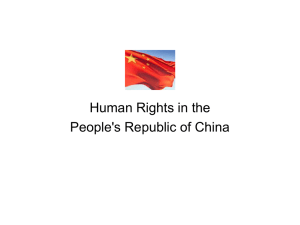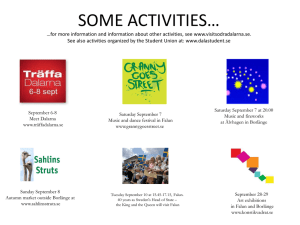T C e
advertisement

The Cultural Economy of Falun Gong in China A Rhetorical Perspective Xiao Ming Emerging in China in the early 1990s, Falun Gong is viewed by its supporters as a folk movement promoting the benefits of good health and moral cultivation. To the Chinese establishment, however, it is a dissident religious cult threatening political orthodoxy and national stability. The author, a Chinese national once involved in implementing Chinese cultural policies, examines the evolving relationship between Falun Gong and Chinese authorities in a revealing case study of the powerful public discourse between a pervasive political ideology and an alternative agenda in contention for cultural dominance. Posited as a cure for culturally bound illness with widespread symptoms, the Falun Gong movement’s efficacy among the marginalized relies on its articulation of a struggle against government sanctioned exploitation in favor of idealistic moral aspirations. In countering such a position, the Chinese government alleges that the religious movement is based in superstition and pseudoscience. Aided by her insider perspective, the author deftly employs Western rhetorical methodology in a compelling critique of an Eastern rhetorical occurrence, highlighting how authority confronts challenge in postsocialist China. By studying the communication practices of Falun Gong and the Chinese government’s response to the movement, this work examines how both sides establish rhetorical strategies to maximize political effects. The author also discusses how both sides create and use ideographs to achieve their agenda diachronically and synchronically. The resulting case study offers a revealing perspective on the power of rhetoric to establish and challenge cultural controls in modern China. The author, writing under the pseudonym Xiao Ming, was a Chinese diplomat and official of the Ministry of Culture before coming to the United States. A graduate of Wake Forest University and the University of Pittsburgh, she now teaches communication at a private college in Pennsylvania. Studies in Rhetoric/Communication • Thomas W. Benson, series editor April 2011, 152 pages Method of payment: _____ Check or money order (payable to USC Press in United States dollars) Send me ______ copy/copies (cl, 978-1-57003-987-4, $44.95 each) ______ Credit Card: ____ American Express ____ Discover ____ Mastercard ____ Visa Account number: _____________________________________ Exp. date: ________ Signature: ____________________________________________________________ SC residents add 7% sales tax ______ Name (please print): ________________________________ Phone: ____________ Shipping address: ______________________________________________________ _____________________________________________________________________ _____________________________________________________________________ *add $6.00 for first book, $2.00 for each additional book Shipping and handling* ______ TOTAL ______ CODE AUFR 718 Devine Street, Columbia, South Carolina 29208 800-768-2500 • Fax 800-868-0740 • www.uscpress.com





